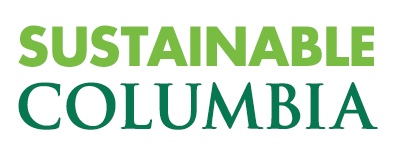Office of Sustainability Leads Sustainability Planning Workshop at EcoReps’ Youth Climate Summit
The session, titled “Using an Innovative and Fun Engagement Process to Create a Sustainability Plan,” was driven by the Office of Sustainability’s expertise in planning and implementing Plan 2030.
Image Carousel with 5 slides
A carousel is a rotating set of images. Use the previous and next buttons to change the displayed slide
-
Slide 1: Jessica Prata presents a powerpoint to student attendees
-
Slide 2: Dan Allalemdjain stands among student participants
-
Slide 3: Jessica presents to a room of students
-
Slide 4: Sticky notes used in activity
-
Slide 5: Focus area brainstorming session
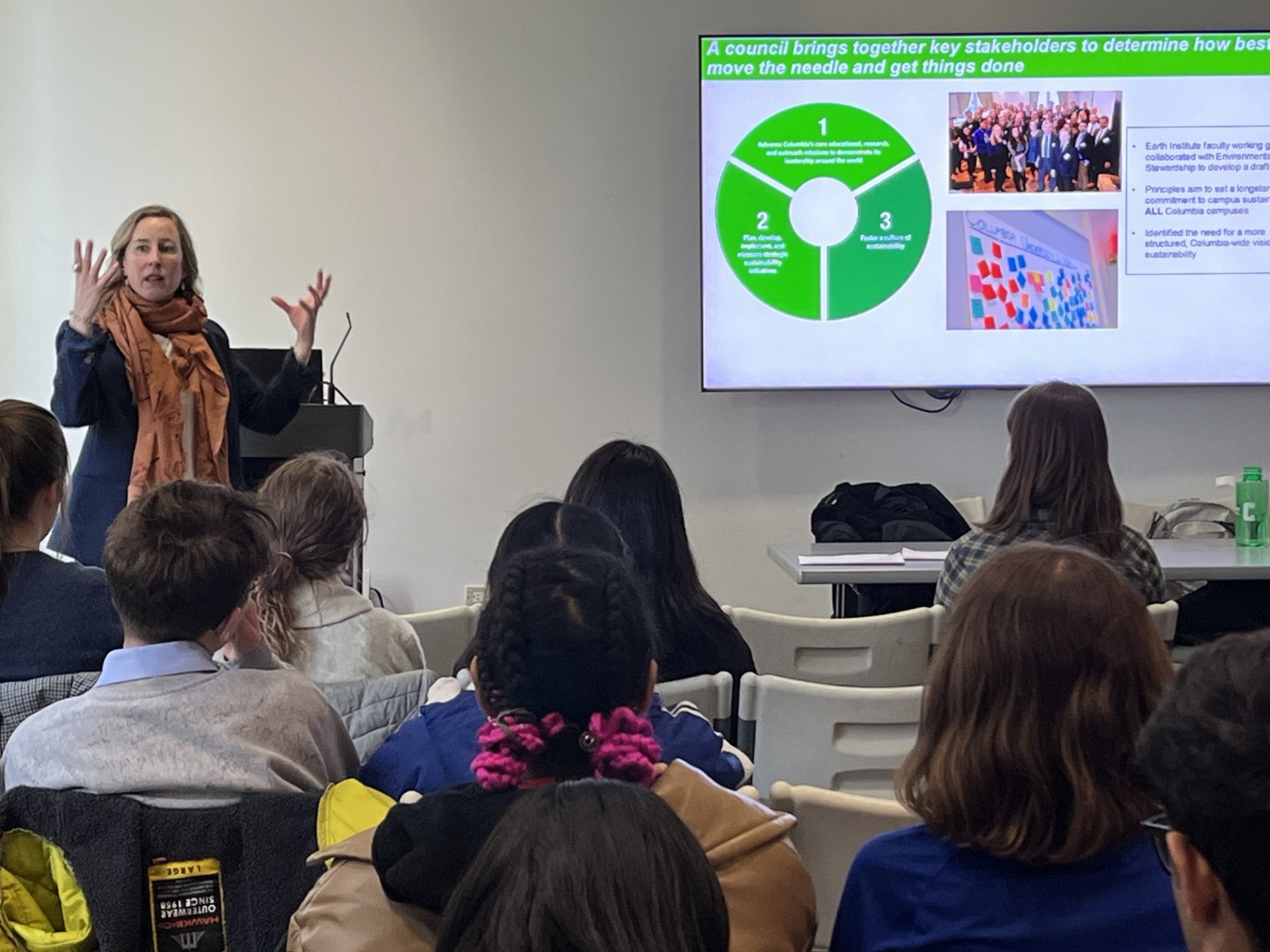
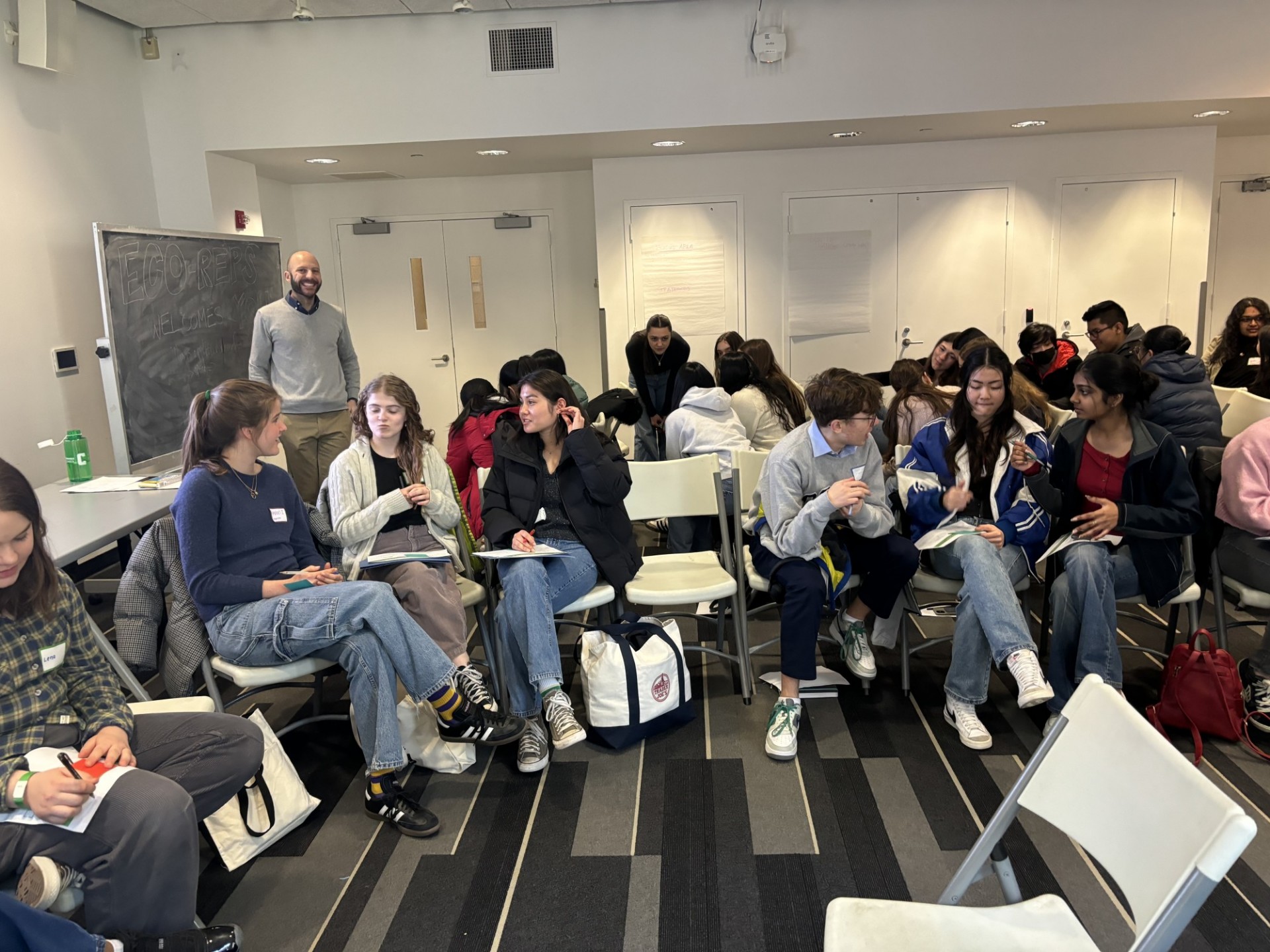
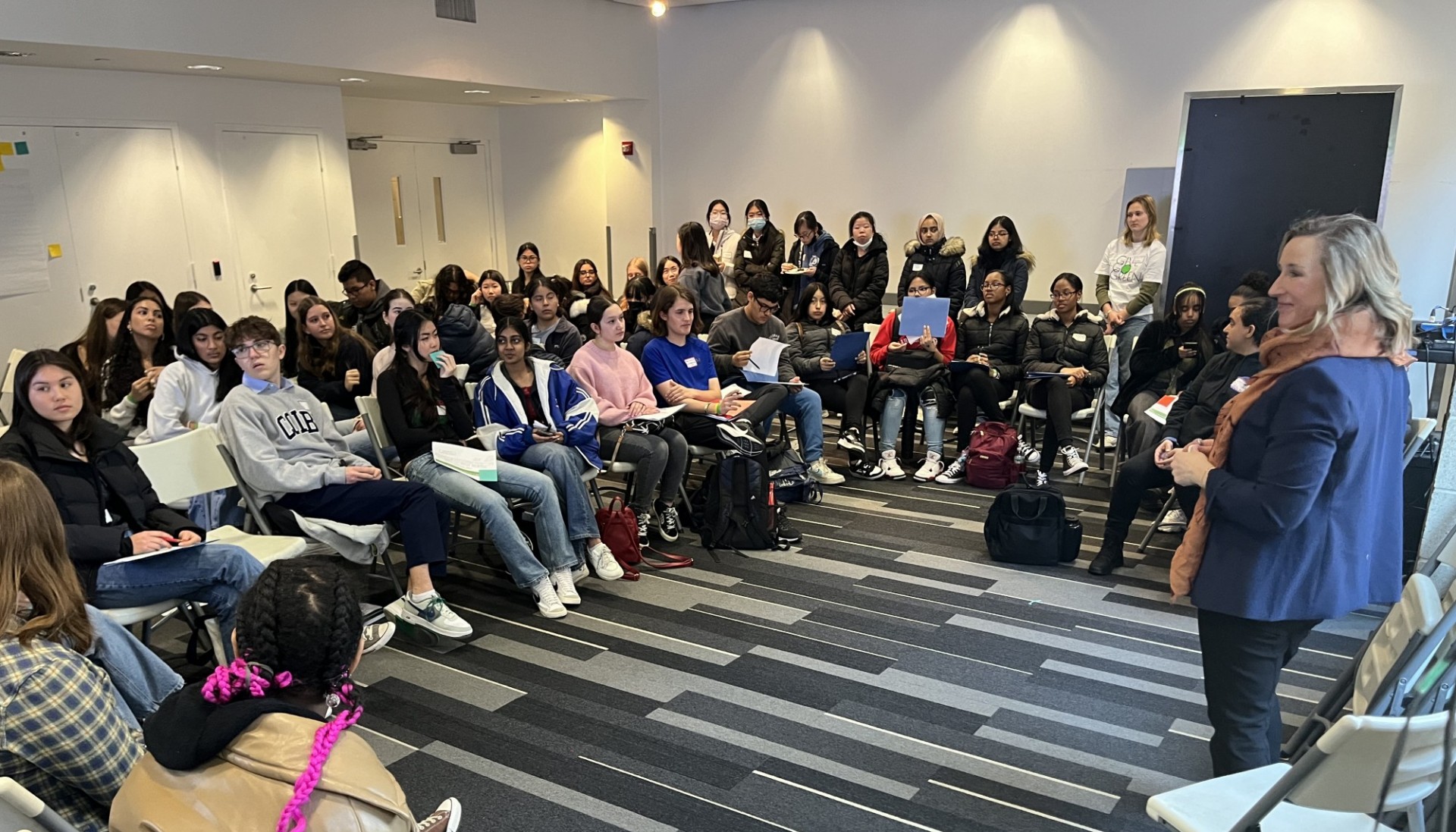
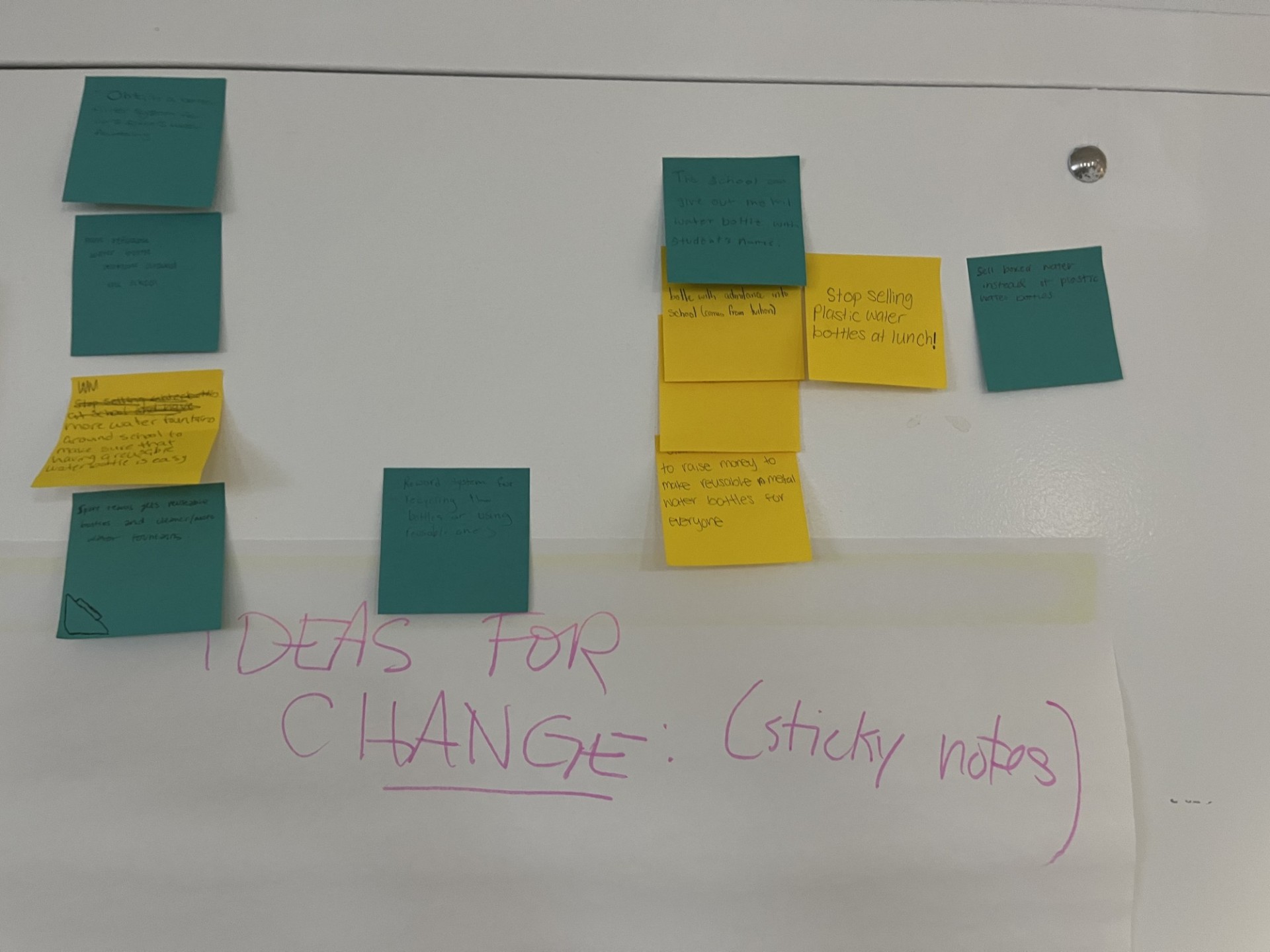
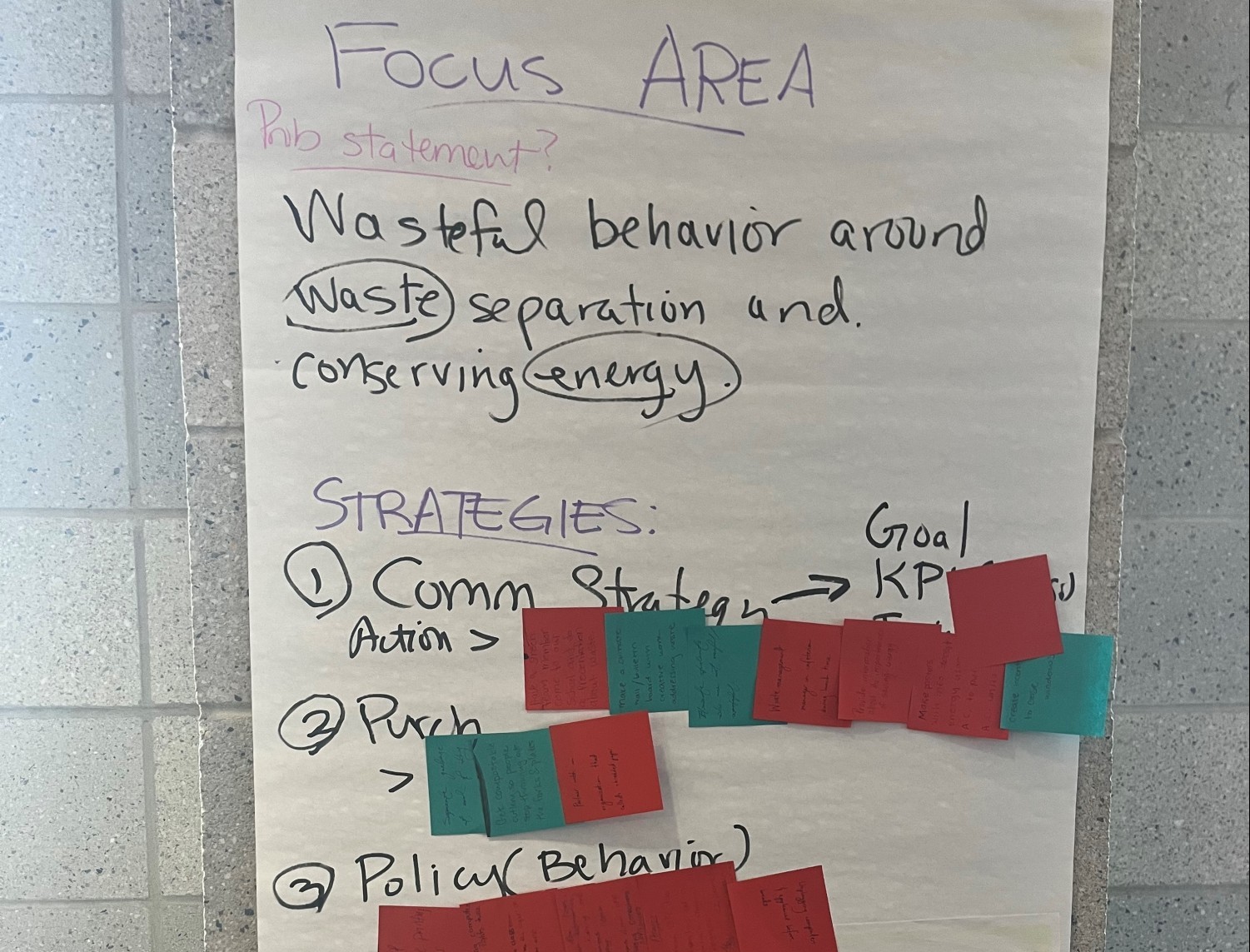
High school students from various New York City schools gathered in Lerner Hall on March 22 for the Youth Climate Summit: a day of climate-focused workshops organized by Columbia’s EcoReps. The goal of the summit was to ignite student passion, creativity, and drive while giving students real-life skills and tools to use in their climate action plans.
Experts from across the University and beyond volunteered to present unique workshops to the student attendees. As part of its Campus as a Living Lab initiative, the Office of Sustainability used the opportunity to teach students about the process of sustainability planning – a process the team is intimately familiar with after publishing two effective sustainability plans since 2016.
The session, titled “Using an Innovative and Fun Engagement Process to Create a Sustainability Plan,” asked participants to choose a topic that impacts sustainability at their school. Then, the Office of Sustainability guided them through developing a plan made up of goals, strategies, and actions to harness the power of stakeholders, communicate objectives clearly, and monitor the implementation process.
The group of 40 students was divided into two groups. One group was led by Jessica Prata, Assistant Vice President for the Office of Sustainability, and the other was led by Dan Allalemdjian, Director for Sustainability and Transportation. Each group of students chose a topic that was important to them: eliminating single-use plastic water bottles, and reducing wasteful behavior around energy consumption, respectively. The groups identified strategies and actions that would impact their topic and created a timeline.
The Office of Sustainability recognizes that changing culture within a large organization can be difficult, as it often requires the involvement and oaction of many diverse groups of people. During the workshop, the team presented strategies the students could use to unify stakeholders and create behavior change at all levels of an organization.
About Columbia’s Campus as a Living Lab Initiative
Universities are uniquely poised to pursue a multidisciplinary approach for engaging students and faculty to help solve real-world problems on campus. Using campus as a living lab helps to foster collaboration between students, faculty, and staff, brings the cutting-edge research of the University to the operations of campus, and provides a chance to teach students to be sustainability leaders of the future. To engage students, the University frequently serves as a client for student capstone and senior thesis projects. This allows for a deeper understanding of the operations of the University and applies the talented minds of Columbia students in solving real-world problems.
To learn more, visit Sustainable Columbia’s Culture Change and Campus as a Living Lab landing page.
